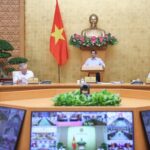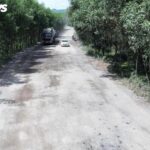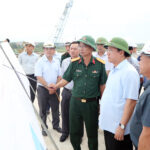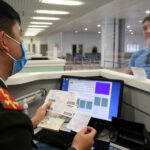“Job Rotation” and Civil Servant Transfers
On the morning of August 11, the National Assembly’s Standing Committee considered the report of the thematic supervision delegation on “The implementation of policies and laws on human resource development and utilization to meet the requirements of socio-economic development, especially high-quality human resources.”
Speaking at the session, Vice President of the National Assembly Nguyen Khac Dinh stated that in the past period, thanks to training efforts, our human resources have met the requirements of socio-economic development.
However, according to Mr. Dinh, in the next phase of building a strong and prosperous Vietnam, human resources will not be sufficient, and some sectors will face shortages. “This is a very heavy and great responsibility for the whole Party, people, sectors, and levels,” he said.
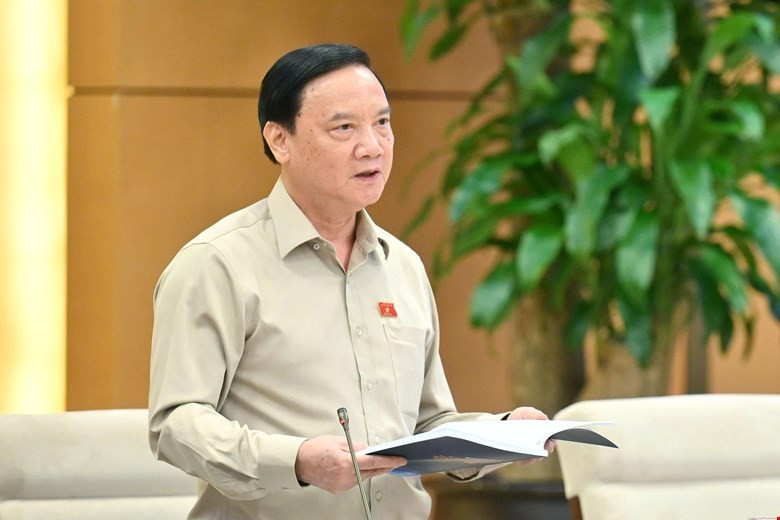
Vice President of the National Assembly, Nguyen Khac Dinh
To ensure human resources for the new era of prosperous development, the Vice President of the National Assembly suggested that first and foremost, there must be a comprehensive understanding and synchronized implementation from all sectors and levels.
Mr. Dinh outlined five key lessons, emphasizing first the need to innovate education and training, focusing on improving quality from the secondary level, as excellent performance at this stage lays the foundation for university success. Therefore, there should be a shift from exam-oriented learning to learning for practical application and wealth creation.
“We still have the mindset of learning for exams, considering high scores as the ultimate goal,” he said. “However, learning should be about acquiring knowledge, character-building, and gaining the skills to work and create wealth.” He also suggested reducing theoretical content and increasing practical training and life skills.
Notably, the Vice President of the National Assembly emphasized the importance of placing the right people in the right positions, both within the state apparatus and enterprises, based on their actual abilities demonstrated through practical work.
“Scientists must produce works, and there should be a mechanism to evaluate their performance during the working process, providing opportunities for officials to enhance their capabilities,” Mr. Dinh noted. “From my practical experience, job rotation and transfers are essential to creating opportunities for growth. Staying in one place for too long can lead to stagnation and a sense of irreplaceability, hindering innovation.”
Challenges in Attracting Talent from Enterprises to Civil Service
Vice President of the National Assembly Nguyen Khac Dinh also shared his experience in retaining and attracting talent. He pointed out that in developed countries like Japan and South Korea, ministers may change every ten months. Sometimes, very capable ministers leave their positions to work in enterprises but later return to their ministerial roles. In our country, it is challenging for talented individuals from enterprises to transition into civil service roles.
According to the Vice President of the National Assembly, it is commendable to appoint an enterprise director as a bureau chief and vice versa. We should retain talent within the country but facilitate movement between the public and private sectors, bringing enterprise culture into state management and vice versa,” Mr. Dinh expressed.
He also emphasized the importance of attracting overseas talent, improving salary and welfare policies, creating a healthy working environment, and reducing hassles.
Additionally, Mr. Dinh suggested encouraging enterprises to provide on-the-job training, especially for high-quality enterprises, and promoting innovation to adapt to the constantly changing global situation.
Concluding the session, Vice President of the National Assembly Nguyen Thi Thanh stated that the National Assembly Standing Committee basically agreed with the 11 groups of solutions, including the group of solutions on perfecting the institutions, policies, and laws and the groups of solutions on organization and implementation.
After this session, the National Assembly Standing Committee assigned the Culture and Society Committee to continue coordinating with ministries, including the Ministry of Education and Training, the Ministry of Home Affairs, the Ministry of Finance, the Ministry of Health, and other relevant ministries, to finalize this resolution.
“Pursuing Excellence: Achieving Socio-Economic Goals for 2025”
The Prime Minister has urged all ministries, sectors, and localities to rally and address challenges, limitations, and shortcomings. By seizing every opportunity, we aim to achieve the economic and social development goals set for 2025, especially targeting a GDP growth rate of 8.3 – 8.5%, keeping CPI increase below 4.5%, and maintaining macroeconomic stability. These efforts will lay the foundation for even greater success in 2026, with aspirations to reach a growth rate of 10% and beyond.
The Bridge to Success: Just Two Months to Go Until the Typhoon-Damaged Overpass is Rebuilt
“In a recent development, Phu Tho Province’s People’s Committee Chairman Tran Duy Dong has urged contractors to expedite the construction of the new Phong Chau Bridge. With a target completion date set for September 2, the chairman aims to have the bridge functional and open to the public by early October. This ambitious timeline underscores the province’s commitment to enhancing connectivity and infrastructure development.”
“Vietnam Waives Visa Requirements for Top 100 Global Business Executives”
The leaders of corporations and enterprises featured in the annual list of the top 100 companies with the largest market capitalization globally, as published by reputable international organizations, will be eligible for a visa exemption for up to 5 years, according to Decree No. 221/2025/ND-CP by the Vietnamese government.

